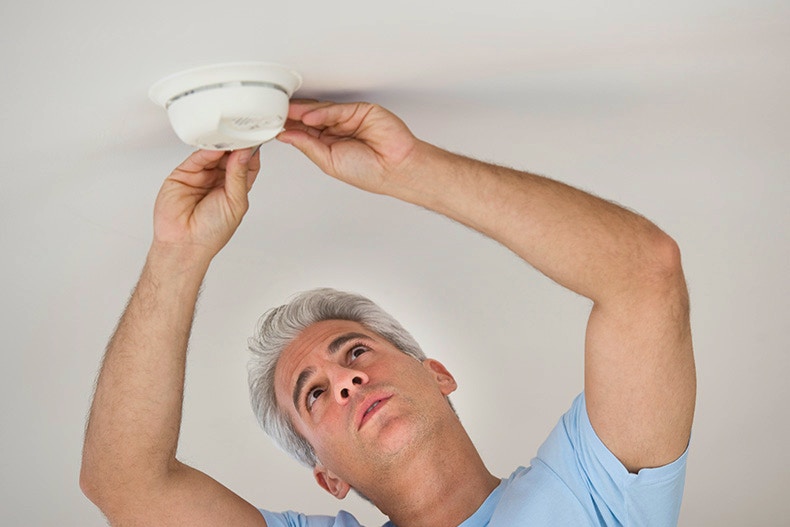We’ve all been there: the loud beeping of a fire alarm randomly going off, and we’re not quite sure what’s causing it. The beeping may drive us crazy. But it’s designed that way to prompt action, especially when there’s a fire emergency.
A house fire isn’t always the cause for triggering a fire alarm. Multiple scenarios can trigger a fire alarm response. Fortunately, most of these are false alarms, and you and your family probably aren’t in immediate harm’s way. Continue reading to learn what you can do if your fire alarm randomly starts beeping.
What Sets Off a Fire Alarm?
The most obvious answer to this question is smoke. However, more things might make a fire alarm go off unexpectedly than you might expect. But first and foremost, if it ever starts beeping, you want to quickly scan your surrounding and make sure nothing is burning. Always treat an alarm as a real emergency, even if you think it’s a false one.
Here are scenarios that can trigger a false alarm:
-Faulty/old batteries
-Too much dust inside
-Broken alarm
-High humidity or excess steam
-Chemicals inside or outside the alarm
-Smoke from the outside seeping into your home
-Connection interference with smart alarms
-Burning candles, incenses, etc.
You should never ignore when your fire alarm beeps. Even if there isn’t a fire, a beeping alarm is a clear signal that something is wrong. Carefully examine the alarm to determine what’s causing the disturbance. Under no circumstances should you ever unplug the alarm.
What to Do When It’s a False Alarm
The most common cause for a false alarm is the easiest to fix, and that’s replacing an old battery. Dead batteries account for 26% of smoke alarm failures, which puts your property at much greater risk. You should replace the battery in your smoke detector at least once per year. However, we recommend you do it every six months to be on the safe side.
Fire alarms sometimes detect moisture from high humidity or steam as smoke particles, which triggers a false alarm. That is why you should avoid putting smoke detectors in the bathroom because the steam from showers can trigger a false alarm. Boiling water in the kitchen is the most likely scenario for this false alarm. However, if the humidity is high in your area that day, you may want to turn on the AC and keep the windows closed.
In addition to steam, chemicals sprayed into the air can also trigger a false alarm. These include cleaning products, bug spray, air freshener, etc. Avoid spraying these chemicals while around your fire alarm. It’s also important to keep your smoke detector clean, as accumulated dust on the inside can also trigger a false alarm.
Another concern you should be aware of is smoke from an outside cookout or fire seeping inside and triggering the alarm. Make sure all windows and doors are closed if you’re having outside activities involving fire. Likewise, avoid burning candles and incenses directly underneath or beside your fire alarms, as there’s a good chance that will trigger the sensor.
What to Do When You Need a New Alarm
Fire alarms and smoke detectors are your first line of defense against a house fire. If you own a smart alarm, a connection interruption could be the cause of the beeping. It’s important to try and reset the connection immediately whenever this occurs.
We recommend updating your fire alarms every ten years. However, you should also check with the manufacturer for a more precise estimate. Keeping your fire alarm system up to date means you’re far better prepared if an emergency occurs.
If it’s time to update your smoke detectors and fire alarm system, the experts at ADS Security can help integrate a smart home fire safety system. Feel free to contact us today to learn more.


